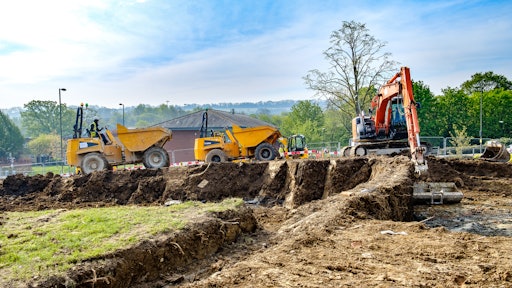Unleash Your Potential with Heavy Equipment Training.
Embark on top-tier heavy equipment training programs providing you with essential machinery skills. Transform potential into prowess!

Are you poised to embark on a mission to transform your potential into prowess with heavy equipment training? With this crucial education, you're setting yourself up for a flourishing career in the heavy equipment industry. This article is your compass, guiding you through relevant heavy equipment training programs.
Why Embark on Heavy Equipment Training
The journey toward mastery begins. Heavy equipment training brings you closer to becoming a competent authority in the industry, well-versed in the latest trends and innovations.
Table of Contents
- Reaping the Benefits of Heavy Equipment Training
- Skills Acquired through Heavy Equipment Training
- Top Courses for Heavy Equipment Training
- Requirements and Eligibility for Training Programs
- Career Prospects after Heavy Equipment Training
- Contribution to the Heavy Equipment Industry
Reaping the Benefits of Heavy Equipment Training

Heavy equipment training expands more than just your skill set; it enriches your career prospects and contributes significantly to personal growth. Embarking on this educational pursuit, you stand to reap manifold benefits.
- Career Advancement: Receiving high-value training can help streamline your journey up the career ladder. Industry professionals with specialized training are often favored for senior roles.
- Enhanced Safety: Understanding the nitty-gritty of heavy machinery operation translates to better workplace safety, reducing the risk of accidents.
- Skills Development: The training equips you with in-demand skills necessary for industry success, like troubleshooting and maintenance.
Skills Acquired through Heavy Equipment Training

Training programs typically offer a comprehensive curriculum designed to cultivate a broad range of essential skills. What, exactly, are these skills? We've got the scoop.
Operation Knowledge:
Much of the heavy equipment training is focused on understanding the operation of primary machinery. This category includes earthmovers, excavators, loaders, bulldozers, dump trucks, and more. Trainees learn how to operate and control these machines efficiently.
Maintenance Insights:
Training wouldn't be sufficiently comprehensive if it ignored essential maintenance tasks. Trainees discover how to perform regular maintenance checks and understand the procedures necessary to ensure equipment longevity and peak performance.
Top Courses for Heavy Equipment Training

While offerings may vary, the following are some key courses to consider when plunging into the world of heavy equipment training:
- Heavy Equipment Operator Program: This program prepares trainees for machinery operation roles, with hands-on exercises and safety training included.
- Construction and Maintenance Electrician Pre-Apprenticeship: Ideal for trainees who wish to specialize in electrical systems, this program provides education on safe electrical work practices.
- Diesel Engine Technician Program: This course delves into the ins and outs of diesel engines, where trainees learn about repair and preventive maintenance.
Requirements and Eligibility for Training Programs
The entrance requirements for heavy equipment training programs can vary, but the following encompass common eligibility criteria:
- Age Restrictions: Applicants must usually be at least 18 years old.
- Education Level: A high school diploma or equivalent is typically required.
- Physical Fitness: Due to the demanding nature of the industry, some level of physical fitness may be expected.
Alongside these essential requirements, a passion for heavy machinery and a willingness to learn and grow are crucial characteristics that will help trainees excel in their journey.
Career Prospects after Heavy Equipment Training
In an industry as robust as the heavy equipment sector, completing a training program opens up a myriad of career pathways. With the right credentials, the world becomes your oyster! Here are some professions you might consider:
- Heavy Equipment Operator: Getting behind the controls of heavy-duty construction equipment is a primary career option. Here, you'll apply the practical skills learned during training.
- Fields Service Technician: This role involves diagnosing, repairing, and maintaining heavy machinery. An understanding of intricate mechanics and electrical systems is crucial.
- Machinery Instructor: Armed with the requisite knowledge and experience, you could choose to mold the next generation of heavy duty operators, passing along your insights as an instructor in training programs.
Contribution to the Heavy Equipment Industry

Heavy equipment training not only elevates your career but also advances the entire industry. By enhancing your skills through training, you're contributing actively to an industry you are part of. But how, precisely, does your training affect the big picture?
Demonstrates Professionalism
As a trained professional, you'll set higher standards of work, establishing stronger client trust and improving the overall image of the industry.
Promotes Safety
With rigorous safety training under your belt, you'll contribute significantly to a safer working environment — a value vital to the heavy equipment industry.
Ensures Performance & Efficiency
Without proper knowledge and training, machinery wouldn't function at its best. Trained professionals ensure optimum operation, reducing downtime and leading to significant economic savings.
In conclusion, heavy equipment training catalyzes your journey in the industry, empowers you with essential skills, and opens up numerous career avenues. With such training, you're not only investing in your future but also contributing positively to the industry at large. It's a win-win!
Setting off for a Successful Journey with Heavy Equipment Training
Unleashing your potential with heavy equipment training is truly an exciting endeavor. And, with the right guidance and resources, you're well on your way to a fulfilling and successful career in the industry. Remember, every great journey begins with a single step. And in the world of heavy equipment, that step often starts with comprehensive training.
What's Your Reaction?












































































